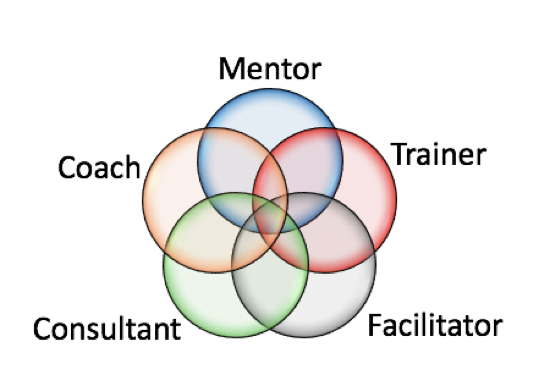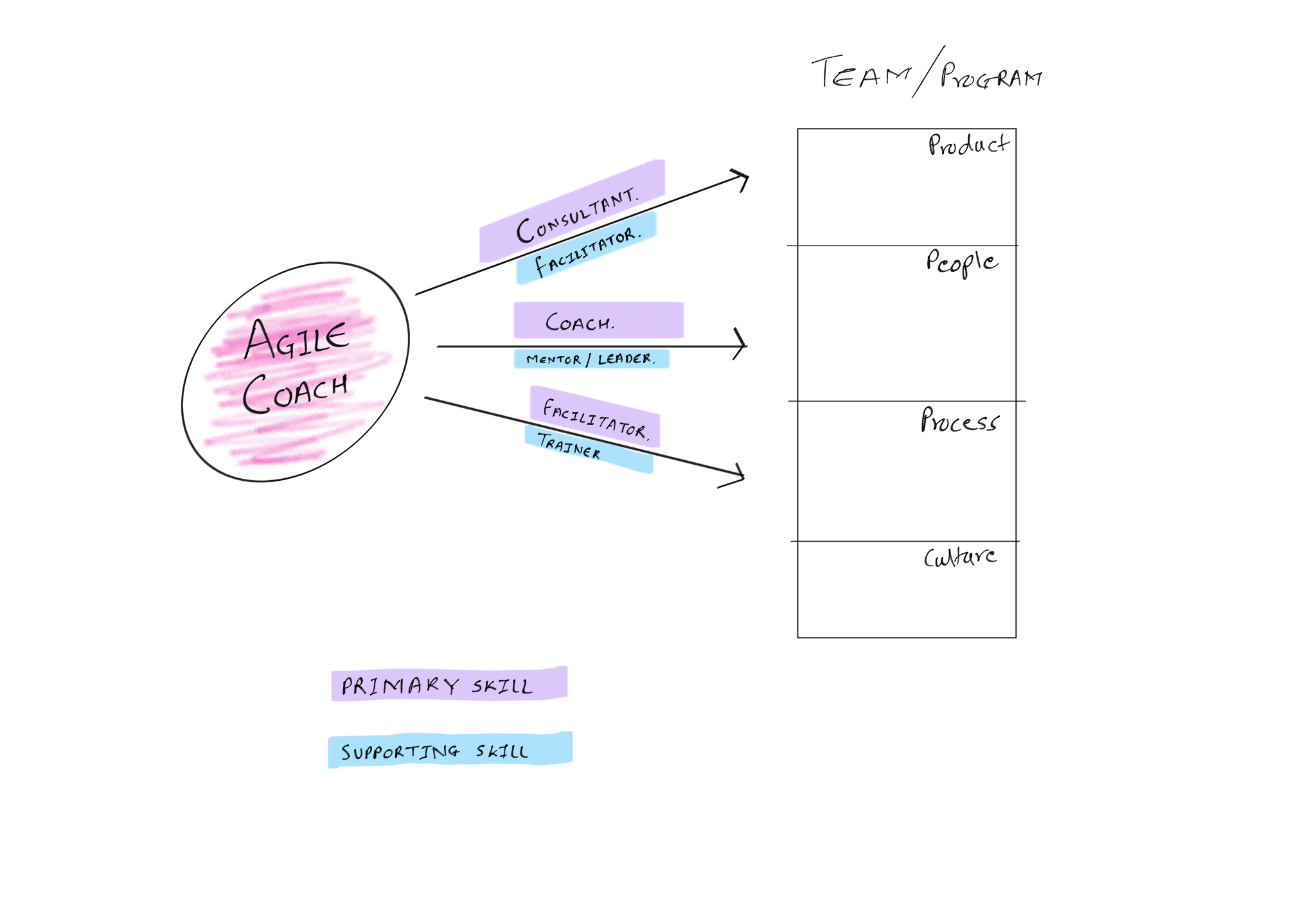Developing Agile Coaching skills.

SAKET BIVALKAR
Business Coach
Continual development of skills is an essential part go professional development of Agile Coaches.
But unfortunately, we see a lack of options to know what skills we are good at and what skills to develop further, an assessment, a development tools that will help Agile Coaches improve their most crucial skills, is something that is required.
But before we cover assessment and development tools, I would briefly like to cover who Agile Coaches are from my personal experience and view.
Agile Coaches help the organisation foster readiness and adaptability by helping companies improve of product, people and processes which in turn changes the company culture.
In the same vein, I believe that Agile Coaches must follow the same adaptability and dynamism, that they promote.
In my experience, the Agile Coach role has five different facets. The 5 facets are Coach, Mentor, Consultant, Trainer, and Facilitator.

These facets have different skills sets, combined with the capabilities, which is essential to know how and what to improve in each facet.
These facets connect with different parts of organisational improvement being undertaken and different work streams that an Agile Coach works on, an example is as following

Each of these skills has a trait, a behaviour that can be observed by others and by coaches themselves.
Now that I have put forth my mental model of agile coaching skills, I believe an assessment based on these facets and their observable behaviours would be more useful for improving the Agile Coach’s role and performance.
Responding to this belief, I am developing a tool consistent with assessing Agile Coaches’ performance, which is then provides a insight into different facets and what can be improved in each facet.
For time being this will be a self assessment, which mean who ever would like to take it would need to be aware and honest with themselves about their “Observables Behaviours”.
In the next blog I intend to publish the list of skills/ methods/ stances of each facet, based on my personal experience in agile coaching during last few years.
In future, We will be adding a 360-degree assessment, soon after a recommendation report for improving upon skills in each facet.
If you would like to take the assessment and know how you can develop in different facets, please ping me and I will send you a link to access the assessment.
Navigating the Retail Opportunity in India.
To navigate the retail opportunity in India, companies need to understand how to manage the business with 1.4+ Billion population, increasing urbanisation, booming middle-class with growing disposable income & discretionary spending.
Business Dynamics in India
India and Europe share not only their linguistic roots in Sanskrit but also the desire to modernise, share, and grow together democratically.
The question for European companies is not “if” but “how” to be a part of the growth story that is India.
Realising your Strategy: The Critical Role of Operating Models
Organizations must continuously adapt and evolve to stay ahead of the competition. One key factor in achieving realisation of strategy is the operating model, which serves as the foundation for execution and provides a clear guide for how resources are organised to get critical work done.




